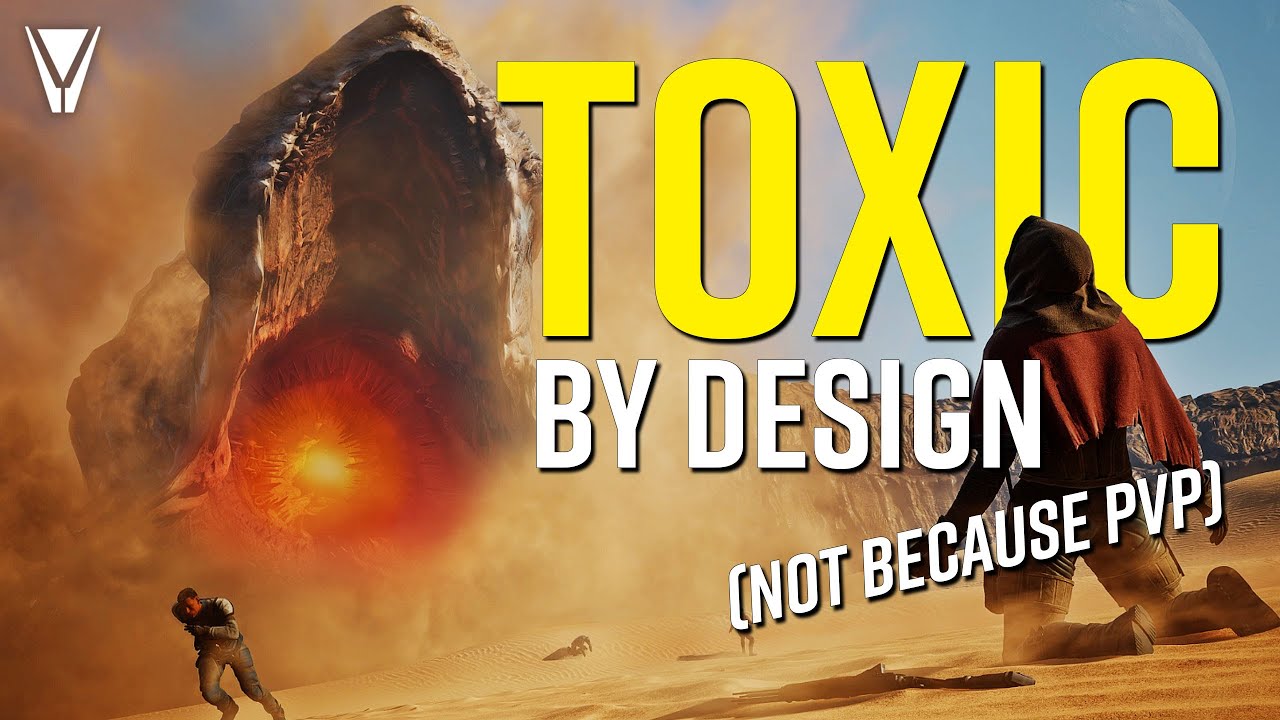The video critiques Dune Awakening’s endgame design for fostering a toxic environment through intentional betrayal mechanics like friendly fire and disguise, combined with poor guild permission controls and lack of activity logs that enable theft and mistrust among players. While these elements add gameplay depth, the absence of accountability undermines faction significance and community cohesion, prompting calls for improved systems to support cooperation and player retention.
The video discusses the endgame design of Dune Awakening, focusing on the deep desert area where players engage in PvP and PvE activities to collect spice and complete faction-based tasks. The game’s endgame is structured around factions competing weekly for benefits by working together in guilds to gather resources and complete objectives. Although players can play solo, group cooperation is heavily encouraged due to the dangers of the PvP zones and challenging PvE encounters. However, despite faction alignment, players often end up fighting everyone, including members of their own faction, which creates confusion and diminishes the faction system’s significance.
A critical issue highlighted is the game’s friendly fire mechanic combined with the ability for players to disguise themselves in enemy faction skins, which the developers confirmed was intentional to allow betrayal. While this design prevents overpowering through sheer numbers (zerging), it also fosters mistrust and suspicion among players. The limited party size and guild size setup further complicates coordination, making the endgame a tense experience where players must be cautious even around allies, contributing to an inherently toxic environment.
The video then delves into the base-building and guild permission systems, which are essential for processing and managing valuable resources like spice. Although the game offers tiered permissions to control access to bases and storage, a major loophole exists: any member with access to processing equipment can manipulate input/output circuits to steal valuable items, regardless of their storage permissions. Moreover, there is no detailed activity log to track who is taking or depositing items in the base, making it impossible to hold players accountable for theft or sabotage within the guild.
This lack of accountability leads to increased suspicion and division within guilds, as players have no way to prove who is responsible for missing items. The creator shares personal experiences where their guild suffered from internal theft, causing members to split off and abandon collaborative base projects. The developers have stated that this design is intentional to encourage betrayal as a gameplay element, but the video argues that without accountability mechanisms, this design is damaging to community trust and cohesion, ultimately driving players away.
In conclusion, the video criticizes the endgame design of Dune Awakening as intentionally toxic, fostering betrayal without providing tools to manage or resolve it. While the betrayal mechanic itself can add depth to gameplay, the absence of effective permission controls and activity logs undermines community building and long-term player retention. The creator calls for improvements such as better faction significance, refined friendly fire rules, and robust logging systems to enable accountability. Despite these issues, the creator remains hopeful for the game’s future, appreciating its world-building and story, and invites the community to discuss their perspectives on this controversial design.
